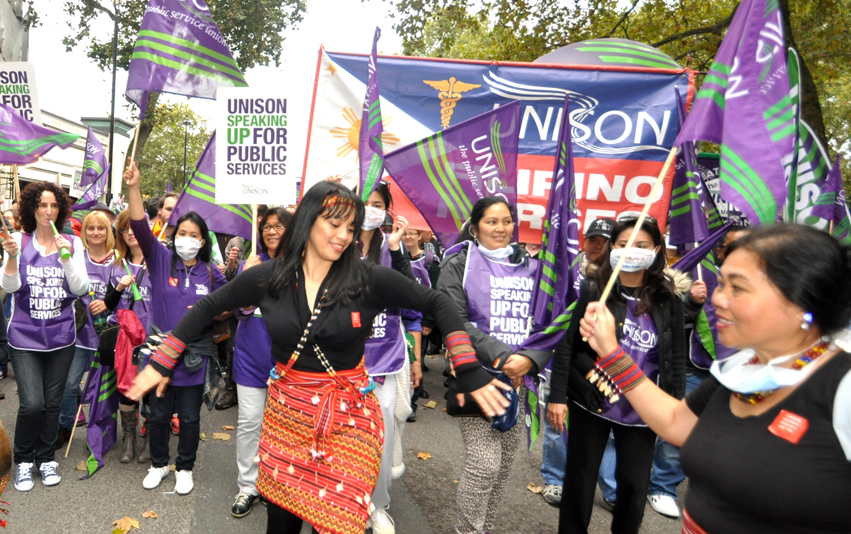IN THE centenary year of nurse registration, a new exhibition is charting the history of the journey from the Nurses Registration Act in 1919 through to the modern day.
Making its point via its title – ‘Wake up Slackers! The great nursing registration controversy’ – the exhibition looks at the heated arguments around the official registration of nurses through the first registration of men, overseas nurses, and one of the first nurses to be struck off.
The RCN was just three years old when registration first happened, and securing this had been part of its founding ambitions.
The exhibition shows how many of the discussions and controversies of the past, including safe staffing, continue today and influence many of the discussions around modern nursing.
The exhibit contains artefacts from the RCN archive – including invites to member meetings to discuss the College’s proposals for state registration, House of Commons Parliamentary debates during the year the Nurses Registration Act was passed in 1919, and also key drafts of legislation.
Opening during Black History Month, the exhibition also showcases the story of Eva Lowe, one of the first known black nurses on the register. Research shows how, despite being well qualified, she was rejected many times before finding employment.
It shows how she received vague and unsatisfactory excuses for her rejection, some based on false concern for her welfare.
As well as letters and documents from the RCN’s own archive, the exhibition will also feature items loaned from other collections such as that of the regulator – the Nursing and Midwifery Council.
Frances Reed, Events and Exhibitions Co-ordinator at the Royal College of Nursing said: ‘It is incredible today to think that 100 years ago there were arguments about whether or not nurses should be registered.
‘Today it seems unthinkable for somebody with such responsibility for the welfare of patients not to be registered, and yet there were strident clashes over it, despite other health professions securing regulation well before nursing.
‘Since Edwardian times campaigners have asked if a nurse is born or made, how we teach and examine care, and even if a registered nurse makes a good nurse at all.
‘The story of the first black nurse on the register, Eva Lowe, is important to highlight too. There is little known about black nurses whose names are on the very early 1920s registers. It is essential we recognise that their contribution to health care existed well before Windrush.
‘It’s also particularly striking to see how hard Eva Lowe had to fight to become the first black nurse on the register, and how 100 years later racial inequalities still exist in the health and care system.
‘It is fascinating to look back through this history of nursing to see how the arguments on both sides developed and how many of the same discussions continue today.’
The exhibition runs at RCN HQ in Cavendish Square, London 17 October-20 March 2020.
- At the same time, a job profile that describes nurses as ‘support’ for doctors and other medical staff has now been taken down by the University and Colleges Admissions Service (UCAS).
UCAS faced online backlash for saying nurses ‘provide support to doctors and other medical staff, take blood and urine samples’ in its online role description for nursing, which it has since vowed to rewrite with help from experts.
Professor of Nursing at the University of York Paul Galdas brought the portrayal to light on Twitter when he tweeted a link to the job profile and urged nurses to ‘collectively challenge UCAS on their current job profile for nursing’.
‘Compare and contrast the description of nursing from UCAS and the NMC,’ chief executive of the Nursing and Midwifery Council (NMC) Andrea Sutcliffe added, commenting on the job profile on Twitter.
In contrast, the NMC recognises the ‘vital role’ nurses play in ‘providing, leading and coordinating’ compassionate, evidence-based and person-centred care’ in its own description, Ms Sutcliffe pointed out.
Chief nurse for Health Education England Mark Radford said he had ‘joined with many other senior nurses across the system and co-signed a letter to UCAS to offer our expertise’.
He said, ‘Nurses diagnose, prescribe, perform surgery, undertake cutting-edge research, advance population health outcomes – and above all, they advocate for our patients and people who use services.’
Professor Galdas told Nursing in Practice that he decided to call on fellow nurses to challenge UCAS on its job description as ‘nursing is perhaps one of the most misunderstood and misrepresented careers in our country’.
He criticised ‘misrepresentations and stereotypes that do not recognise the expert, evidence-based care’ in nursing and ‘detract from efforts to encourage more people to choose a career in nursing’.
